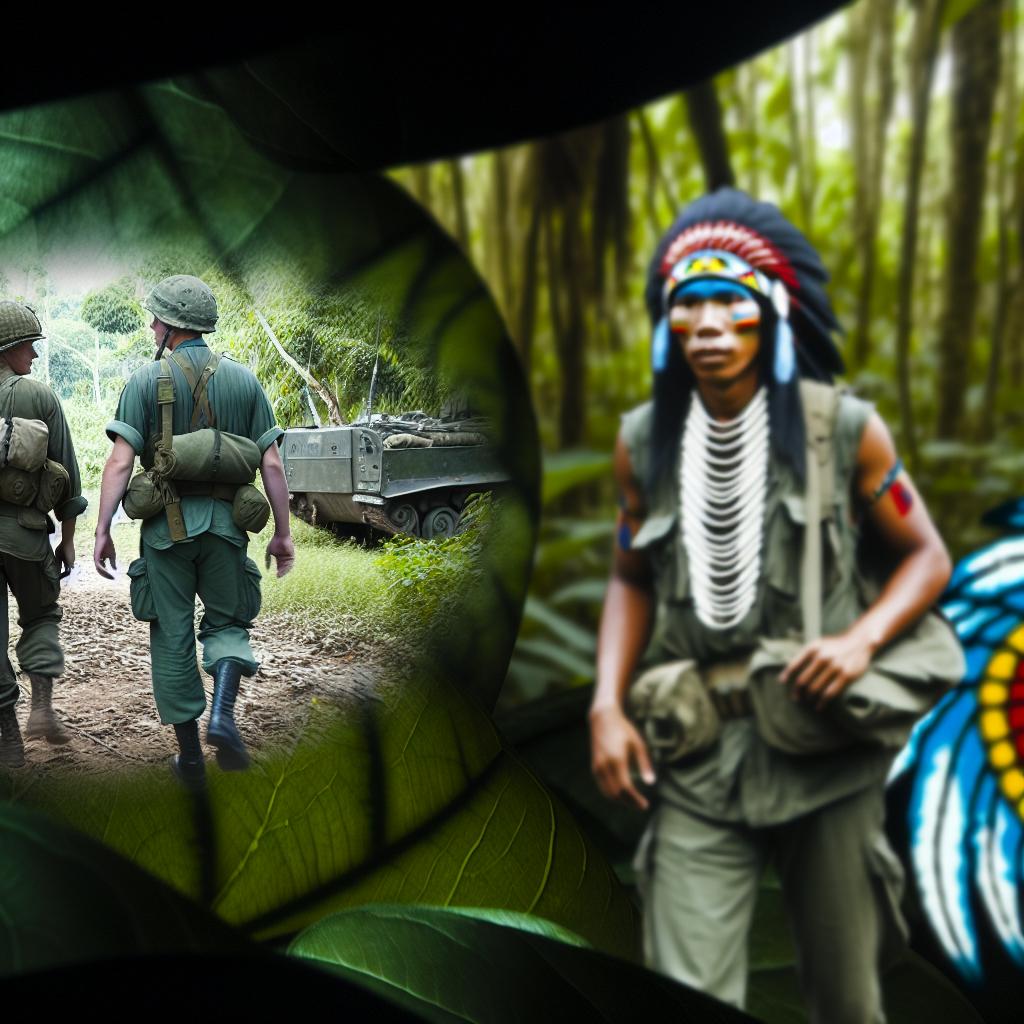Introduction
The Vietnam War, a pivotal event that left an indelible mark on both American and Vietnamese cultures, saw individuals from diverse backgrounds across the United States come together to serve. A particularly noteworthy group within these ranks was Native Americans, who played a crucial but often underrepresented role in this complex conflict. This discussion seeks to illuminate the significant involvement of Native Americans in the Vietnam War, offering a detailed examination of their motivations, experiences, and the enduring impact of their service.
Participation and Numbers
Native Americans have long had a tradition of military involvement in the United States, and their participation in the Vietnam War followed this historical pattern. Although precise documentation of the number of Native Americans who served in Vietnam is lacking, it is estimated that over 42,000 Native Americans enlisted during the Vietnam era, which spanned from 1964 to 1975. This was a remarkable contribution, given that Native Americans represented only a small fraction of the overall U.S. population at that time. Their service underscores a continuing legacy of military engagement that has persisted throughout generations.
Motivations for Enlistment
The high numbers of Native American enlistment during the Vietnam War era can be attributed to several underlying factors. Traditionally, military service has been associated with increased respect and prestige within Native communities. Many saw enlistment as a way to respect and perpetuate their warrior traditions, honor family legacies of military service, and fulfill a duty to their nation. Moreover, for numerous Native Americans, military service presented opportunities for economic advancement and educational benefits that were otherwise scarce in their communities. These factors combined to create powerful incentives for Native American young adults to join the armed forces.
Cultural and Logistical Aspects
The contribution of Native Americans to the Vietnam War effort was more than just numerical; it was enriched by the unique cultural perspectives and skills they brought to the military. Their familiarity with diverse landforms and adeptness in tracking and survival were invaluable in the jungle environments of Vietnam. In some instances, Native American soldiers utilized their indigenous languages as codes, reminiscent of the Navajo Code Talkers’ crucial role during World War II. Although this practice was on a less formal scale during the Vietnam War, it exemplified the strategic advantage provided by Native Americans.
Experiences in the War
Native Americans in Vietnam encountered a mixture of shared and unique challenges during their service. Like their fellow soldiers, they faced the perils of war, but additionally dealt with the complexity of maintaining their cultural identity amidst the demands of military life. Many Native American servicemen and servicewomen experienced racial discrimination and prejudice within the armed forces, which added further hurdles to their already demanding roles. The experiences and stories of these soldiers highlight a complex interplay between service, ethnic identity, and personal values, impacting their lives both during and after the war.
Post-War Impact
In the aftermath of their service in Vietnam, Native American veterans grappled with numerous issues, akin to those faced by all returning veterans, including post-traumatic stress disorder (PTSD) and difficulties transitioning back to civilian life. The Vietnam era coincided with a burgeoning movement for Native American rights and activism; many veterans thus found themselves at the forefront of advocating for change. Their military experiences, coupled with leadership skills honed during service, empowered them to become strong voices in the fight for Native rights. This juxtaposition of military citizenship and activism exemplifies the profound impact of the Vietnam War on Native American individuals and communities.
Conclusion
The narrative of Native Americans in the Vietnam War reveals a complex tapestry woven with threads of cultural heritage, national service, and personal commitment. Unpacking their contributions provides a fuller understanding of the Vietnam War’s legacy while also offering insight into the broader history of Native American involvement within the U.S. military. The experiences of these veterans, echoing within their tribes and communities, continue to influence modern-day discussions around identity, service, and recognition. This ongoing resonance speaks to the enduring legacy of their sacrifice and commitment, ensuring that their stories remain an integral part of military history.

